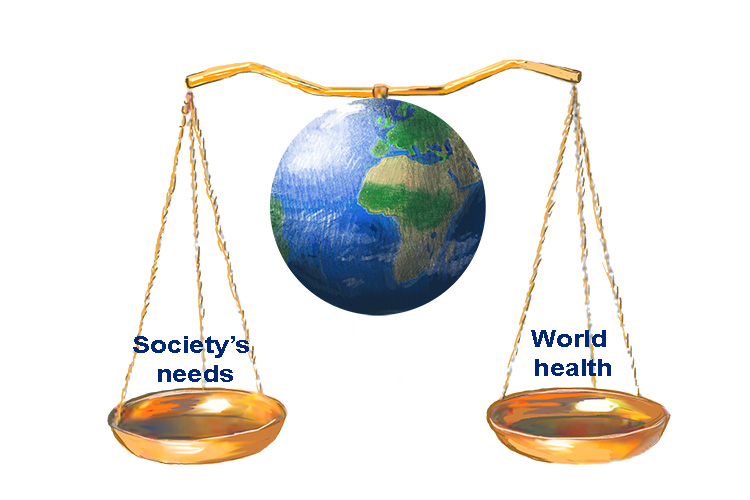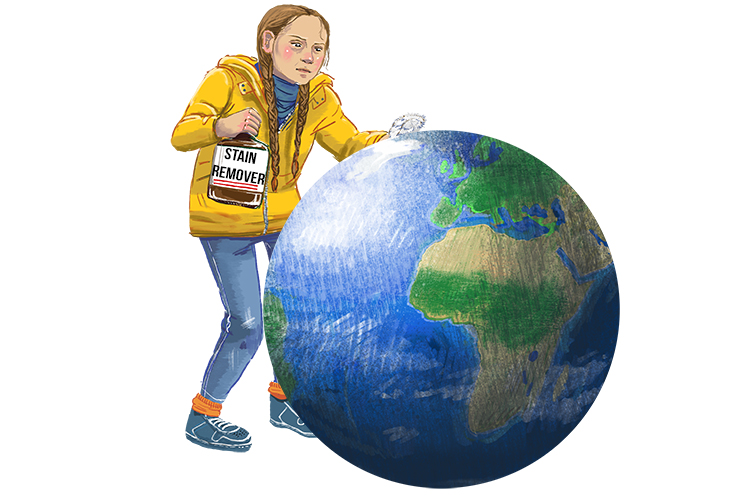Sustainability – Actions and forms of progress that meet the needs of the present without reducing the ability of future generations to meet their needs
To remember the meaning of the term Sustainability Farming, use the following mnemonic:
Such a stain affects people's future ability (sustainability) to have their needs met. We need to stop these stains.

"Sustain" means to give support to, to hold up or keep up. It's easy to relate that to the development of systems and processes that can be "kept up" or "supported" to meet current needs, without causing any problems for future generations.
"Ability" means having skill or potential to do something. So, together, sustain and ability mean "kept up" or "supported" with "skill" and "potential".
Sustainability, in the environmental/social sense, means processes and activities through which we can avoid the depletion of natural resources, so that quality of life doesn't decrease over time.
The exploitation of resources, manufacturing operations, financial investments, technological development, wealth distribution and many other things are sustainable if they don't hurt the ecosystem and don't reduce quality of life.
There are three pillars of sustainability: economic, social and environmental, also known as "profit, people and planet" and "the triple bottom line". To be sustainable, development, investment and most other projects and ideas need to fully address all three - i.e., not just the bottom line (profit), but also social and environmental considerations.





